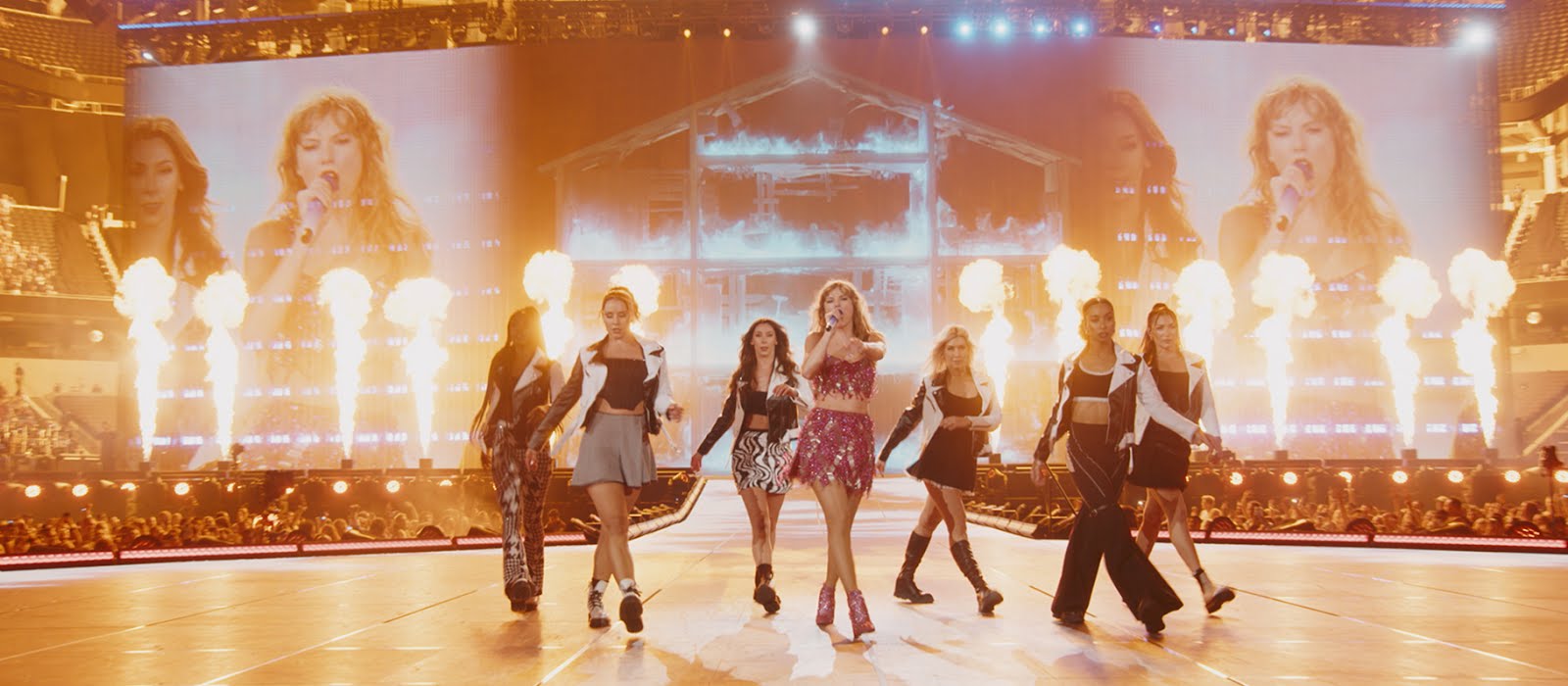A still from Taylor Swift: The Eras Tour (Taylor's Version). © 2024 Disney Enterprises, Inc. All Rights Reserved.
Taylor Swift is a sport
And The Eras Tour is the World Cup.
I could have said it’s our “Superbowl” as a not-so-subtle nod to her current romantic life. But let’s not do the woman a disservice – Taylor Swift’s Eras tour is a global phenomenon. The Eras Tour actually is a World Series, as opposed to the grossly exaggerated terms America’s baseball and football use for their domestic leagues.
But enough of the semantics, this is serious business.
There are many, many famous pop stars out there, and certainly a few who are less divisive than Ms Swift. And yet, in 2023, the woman has dominated financial trends, music charts and gossip columns more than Béyonce’s Renaissance tour, Adele’s Vegas residency and U2’s Sphere experience combined.
Taylor Swift's Eras Tour is unlike any other sport that has come before and has been designed by and targeted for women and girls.
As her live concert special prepares to land on Disney+ on March 14 and her European leg edges closer and closer, some are asking why so many people, most of whom have not been particularly moved by her music up until now, are suddenly scrambling to pick up €1,000 tickets to The Eras Tour? It’s a thrilling three-hour event of choreography, pyrotechnics and vocal stamina sure, but how could it possibly be worth it? Yet the answer from the majority of attendees to her US, South American, Australia and Singapore shows is yes.
Listening to Caroline O’Donoghue’s Sentimental Garbage recently, she briefly described the Taylor Swift phenomenon to her partner Gav as a large-scale sporting event but for women. And I realised – Taylor Swift is a sport and The Eras Tour is a sporting event on one of the largest-ever scales. And it’s a sport that, unlike any other sport that has come before, has been designed by and targeted for women and girls.
But there are no balls?
Let’s talk for a moment about what makes sport sport, aside from the kicking/passing elements. Sport is a part of culture that is played mostly by and for men. It’s where unbelievably physical ability is put on display and yet, it’s where that extraordinary individual ability comes together to become more than the sum of its already-very-talented parts.
It’s a space that holds significant emotional and cultural value. Sport can create the purest form of hope. Hope that you can be a part of something bigger than yourself, part of a community and potentially even the winners’ table. It’s where perfection can be found amongst a myriad of individual errors. There’s that age-old Theodore Roosevelt “Man in the Arena” speech; a man “who knows great enthusiasms, the great devotions; who spends himself in a worthy cause; who at the best knows in the end the triumph of high achievement, and who at the worst, if he fails, at least fails while daring greatly, so that his place shall never be with those cold and timid souls who neither know victory nor defeat.”
Sport is an incredibly positive and pure experience, almost religiously so. You can’t be a cynic in sport, a lack of commitment or faith is sacrilege here. For men, it’s a place where they can express their feelings in a way that they struggle to in other areas, even in the sanctuary of the marital home.
Stadiums too, are spaces specifically designed to amplify such emotion and atmosphere, it make thousands of people feel like they really are together, sharing in a common goal, a common passion, a common feeling. Where they come together to celebrate or commiserate as a living, breathing single entity.
Sport is community.
As well as being all of these things, sport is also undeniably a capitalist endeavour, in which a significant amount of money flows in and out, from sponsorships to stadium building to the sale of kits.
What if women were foundational to a sport?
It’s also a space that has predominantly excluded women. Going back to its origins and the gladiators of Ancient Rome, sports and their venues have been places for men to watch and commune with other men. Sadly women’s sport has not had even a quotient amount of financial backing or exposure for big businesses to consider taking the risk of hosting female-focused events in large venues. Take the 2024 Six Nations for example, the men’s home games played in the 51,700-seater Aviva, while the women’s will be witnessed by 18,500 in the RDS.
Sport is by no means perfect but if sport can be all those things – a place where people come together in community and in hope to watch others transcend their own humanity into something God-like and pure – why wouldn’t women want in on that? Of course, there is an appetite amongst women for a space to celebrate and, dare we even say, idolise other women.
What if women were considered from the very creation of sport? I imagine it would look a little like The Eras Tour. Perhaps not in terms of glittery tweens and a plethora of sequinned jumpsuits, but a magnificent effigy to what women can create for one another, touted high and sung out loud with abandon. And with a price point that matches the hype.
Because let’s be honest, everything that defines sport outside of the score-keeping element (and we know T Swift can keep score) also defines The Eras Tour. Taylor Swift is putting together a performance that is far more than the sum of its parts. She is unashamedly targeting her music and performances at women and with it, creating a positive, uplifting experience and a die-hard community of women that are raised up by Swift, but also those around them. Have you seen the videos of ticketless women and girls singing and dancing with each other outside her concert venues? How could you not be heartened by the purity of that?
The real question is, why has no one ever done it before? The answer is, even in 2024, there are very few women with enough personal capital that they could feasibly sink into such a “risk”, to literally put their money where their mouth is.
Yet Taylor Swift stands to make approximately €3.8 billion ($4.1 billion) from The Eras Tour, all while generating many more billions for local economies and taking care of the thousands in her employ (she recently gave the truckers carrying her stage equipment a $100,000 bonus at the end of her US leg).
Turns out, sport for women is actually a pretty safe bet.



















